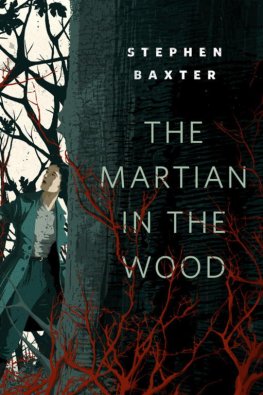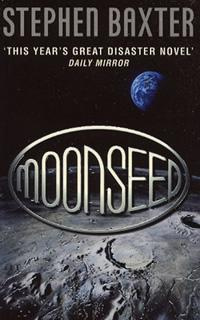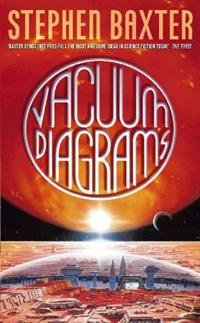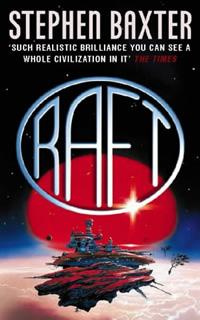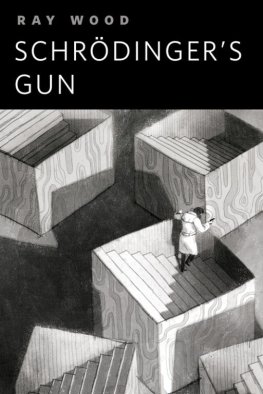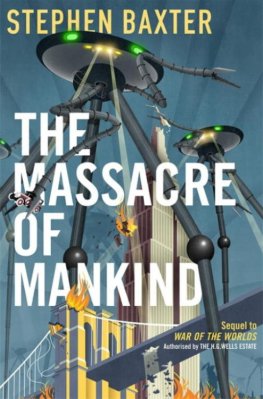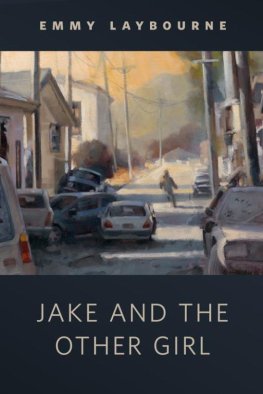Stephen Baxter
THE MARTIAN IN THE WOOD

I never saw Holmburgh Wood before it was destroyed.
To help me imagine it, I have only the descriptions of Walter Jenkins, that notoriously unreliable narrator of the First Martian War, and Zena Gardner, who was at least an eyewitness to the events that led to the Woods burning.
Holmburgh is in Sussex, in the south of England. This is old country, older in a sense even than the rest of our venerable island nation. For, you see, it always lay beyond the reach of the glaciers. Even at the height of the Ice Ages past, these southernmost counties were spared the grinding and bedrock-scraping suffered by more northern terrains. Holmburgh Wood in modern times was a tangle of tree species, of deciduous and evergreen mixed in together, that could not, of course, have survived in that form since the last warm interval between the returns of the ice. In the frozen desert south of the glaciers, at the site of Holmburgh, there might have been a tangle of Arctic willows, their roots clinging to rocky ground, bent over by the unceasing wind. Yet the Wood itself survived with seeds and spores, perhaps, sleeping in the ground until the warmth returned. Survived, with something of its dark character.
I never saw Holmburgh, then, but, as I have followed up this peculiar appendix to the greater tale of the War, I have visited other ancient boreal survivors of its kind: Fetch Wood, Rendlesham Ryhope in Herefordshire too, with a place name that has some similarities of root with Holmburgh. These are uneasy places to visit, dense dark woods uncut and untamed, the trees growing too thickly, the ground choked by leaf litter and lichen and moss, the space itself lightless and cramped where you lose your bearings within a few yards of entering. Places always associated with dread and hauntings and mystery.
Well, Zena Gardner grew up close to Holmburgh Wood in its full, grim flowering: a survivor from prehistory, and untouched by history. The Britons feared it. The Romans drove their roads around it. The Saxons worshipped it. The Normans enclosed it in one of their vast hunting estates.
Of course, there are no woods on Mars. Yet a Martian came to Holmburgh.
* * *
As it happened, Walter Jenkins was first contacted about the modern mystery of Holmburgh Wood on October 6, 1907, exactly three months after Mars and Earth had been perfectly aligned in that years opposition: that is, the date on which the planets had approached each other most closely, with Earth overtaking Mars in its slower orbit. It was this close approach that had of course given the Martians the opportunity for their invasion of the earth, specifically of Surrey and London. By October 6, though, the last Martian was already dead three months so far as we knew then and Walter, having recovered from his own trauma well, so far as he knew then was beginning the research that would lead to his own glorious, notorious account of the First Martian War and his part in it.
But he was distracted from this labour by strange news from Holmburgh.
Until recently I, his sister-in-law, knew nothing of this particular incident and Walters own part in it. This was despite my relatively close contact with him ever since the unfolding of the Second War. It has only been in my role as his unofficial archivist since his death in August of this year that I have come across his record of the Holmburgh incident. In his house on Maybury Hill in Woking he left behind a great nest of writing. It is probably accurate to say that my brother-in-law wrote, almost every day of his adulthood save when the conditions of the Wars made that impossible almost to the end of his long life. And the quality was dauntingly high, if the themes were somewhat specialised. I myself am a reporter, a journalist; I can vouch that Walter Jenkins was no great war correspondent, but he was a valuable if flawed reporter on the condition of at least one human soul his own.
And, as I said, contained within the archive is a fragmentary account of the Holmburgh events. The Martians, you see, had launched in May 1907, landed in June, and were dead in July. By early October Walters narrative project was already known to the public and as a philosopher with a facility with words he had always had a profile in the newspapers.
And so Zena Gardner, when she became concerned about the Wood and in particular its influence on her brother, decided to seek him out for his advice. What follows is my imaginative reconstruction of their encounter.
* * *
As happened to so many families in southern England at the time of the First War like my own the Gardners lives had been disrupted by the Martian incursion, and struck by tragedy. Zena herself had been stuck in Paris, where she had been studying. When service was resumed after the fall of the invaders she had got on one of the first ferry ships to sail from Calais.
Zena had already known that her parents were among the many lost during those devastating days of Martian attack, a vanished horde not yet even counted by the time of her return in early August. But she felt it her duty to visit their house in Kensington, a shattered district, where they had died. To add to the distress of the survivors, the Heat-Ray left few traces of its victims, so that confirmation of death and the issuing of probate was a challenge, though the authorities were sympathetic. Zena left her details with the police, to be informed if there were any property or papers to be reclaimed or any bodies to be identified.
Then she caught the train, the rail service itself still struggling to recover, and travelled south and west to Sussex and home. She arrived on a sultry day, the sunlight heavy; it had been a hot, oppressive, storm-laden summer throughout the few weeks of the Martian War, and still that humid heat lingered.
And she returned, she told Walter, to a house itself untouched by the War, but empty of family. Or so it seemed.
The estate itself had been established by one of the Conquerors robber barons, a particularly vicious example of his sort, whose line had brutalised the Saxon peasantry before dissolving in a saga of incest and murder. The Gardners who took over the bankrupt estate, despite a name indicating humble origins, themselves were a great trading family of the British Empire, dealing in sugar, coffee and slavery. In 1907 it was not yet a century since that awful trade had been abolished in the Empire, and the Gardners were not alone in the source of their prosperity. The Gardners themselves were an unpleasant bunch, and much of their money was lost in fratricidal conflict. By the dawn of the twentieth century, though, they were still reasonably wealthy, certainly in property with their continuing ownership of the estate with its hundreds of acres of land most of it farmed by tenants. Zenas parents had preferred to live in their residences in London, running the stock trading businesses that in modern times had generated much of their wealth.
Zena and her only brother Nathan were both in their twenties. Zena had gone to Paris to study biology; this was a time, you see, when opportunities to pursue a career in such fields were just, barely, opening up for young women like Zena. When Zena learned the true origin of the wealth that sustained her, she was shocked. She was drawn to socialist and other forward-thinking groups and individuals which was how she first heard Walters name, he being one of the countrys foremost moral philosophers before the Martian War, and notorious as its chronicler afterwards.
Nathan, it seemed, had always been rather duller in personality. A year younger than Zena, he had followed his parents to London where he had made brief forays into the world of high finance clearly the parents had hoped he would follow in their footsteps but he had soon returned home. He had always been an outdoors type, even as a boy. Now he tried out modern agricultural methods on the estate, to the bemusement of tenant farmers twice his age. Yet he was a romantic too, with his head turned by accounts of the great British explorers of decades past. As a boy, Zena would recall, he had played at being James Cook or Robert Falcon Scott, bravely penetrating darkest Holmburgh Wood. But he had never gone deep in there not then.

